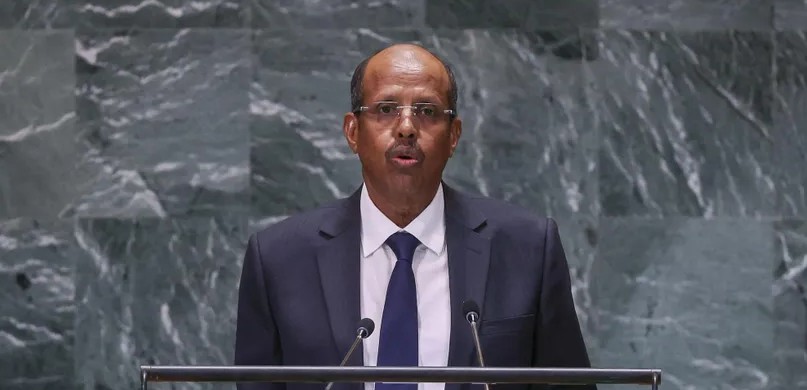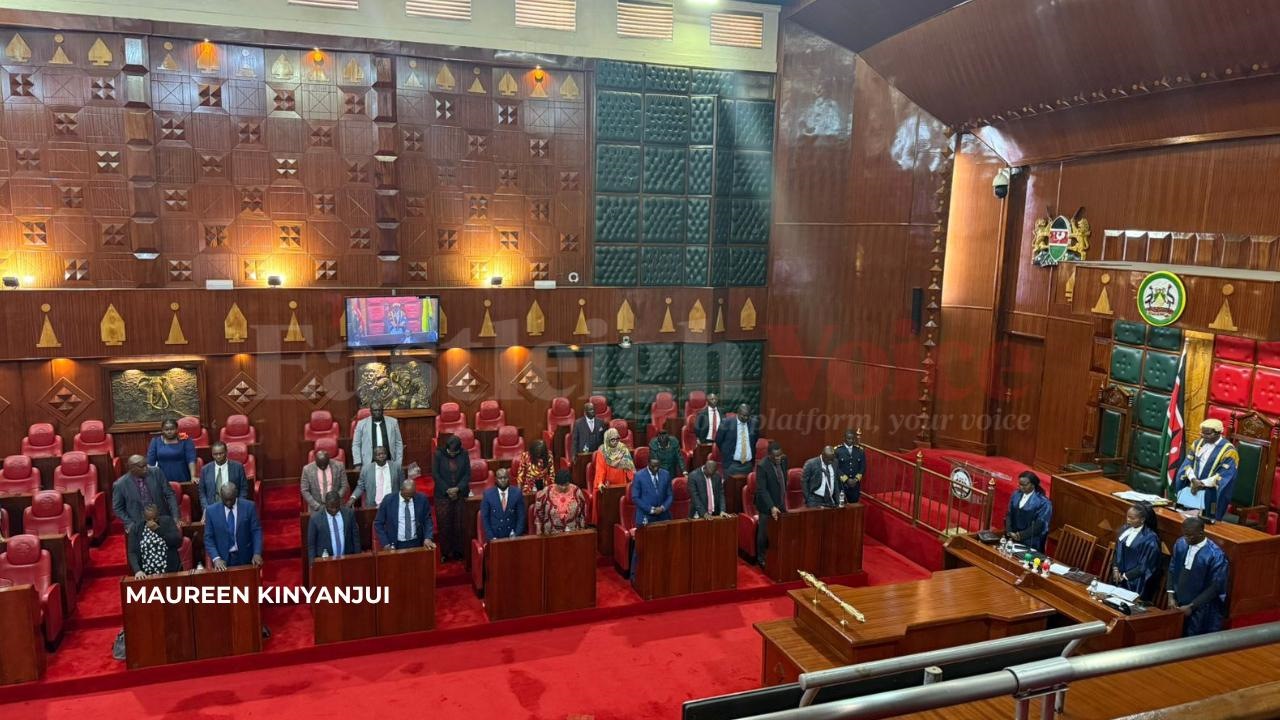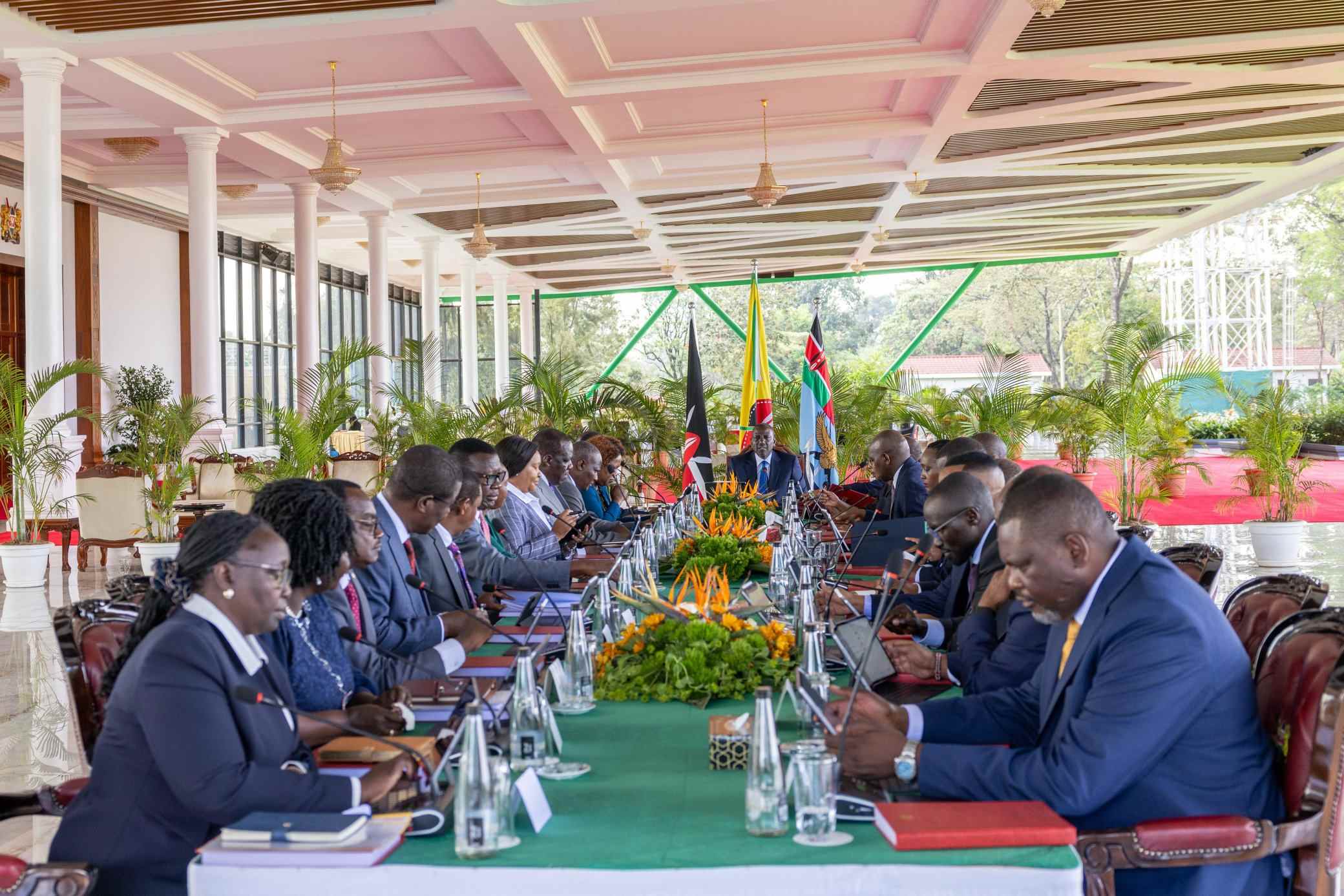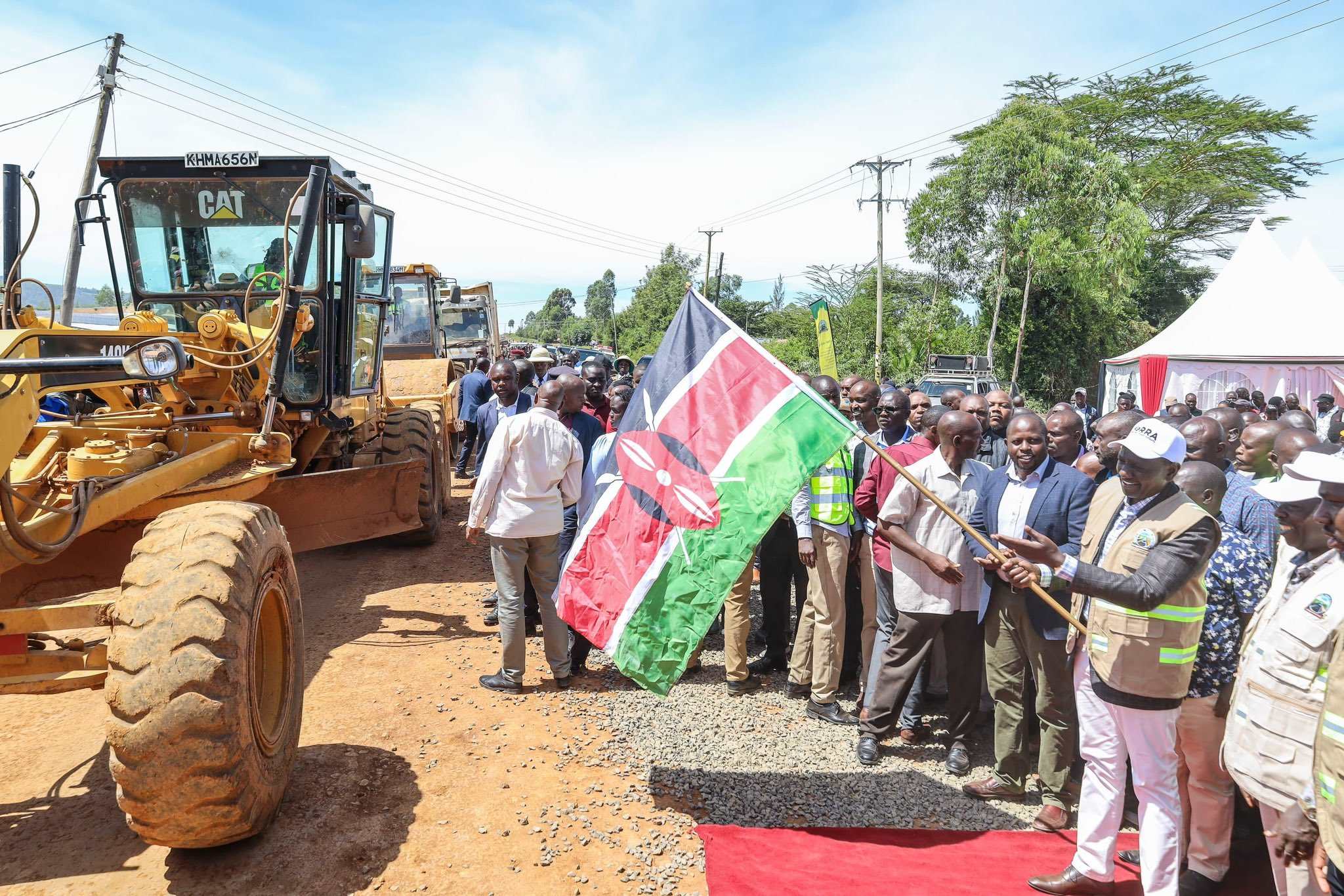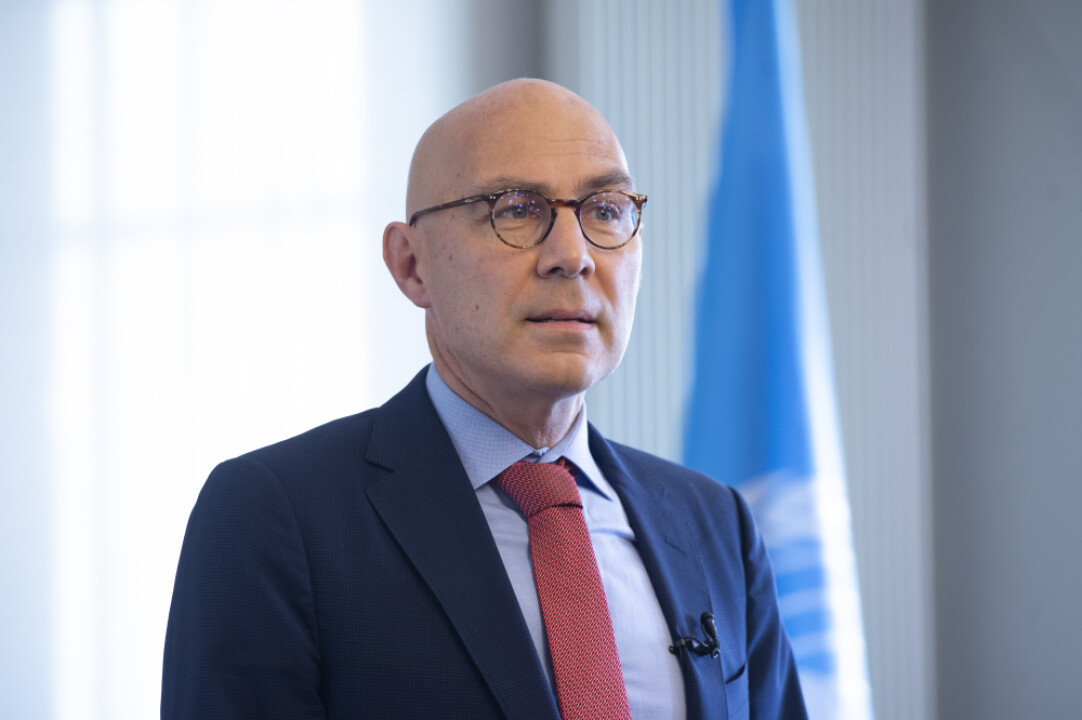Kenya eyes wider telecom connectivity in next decade
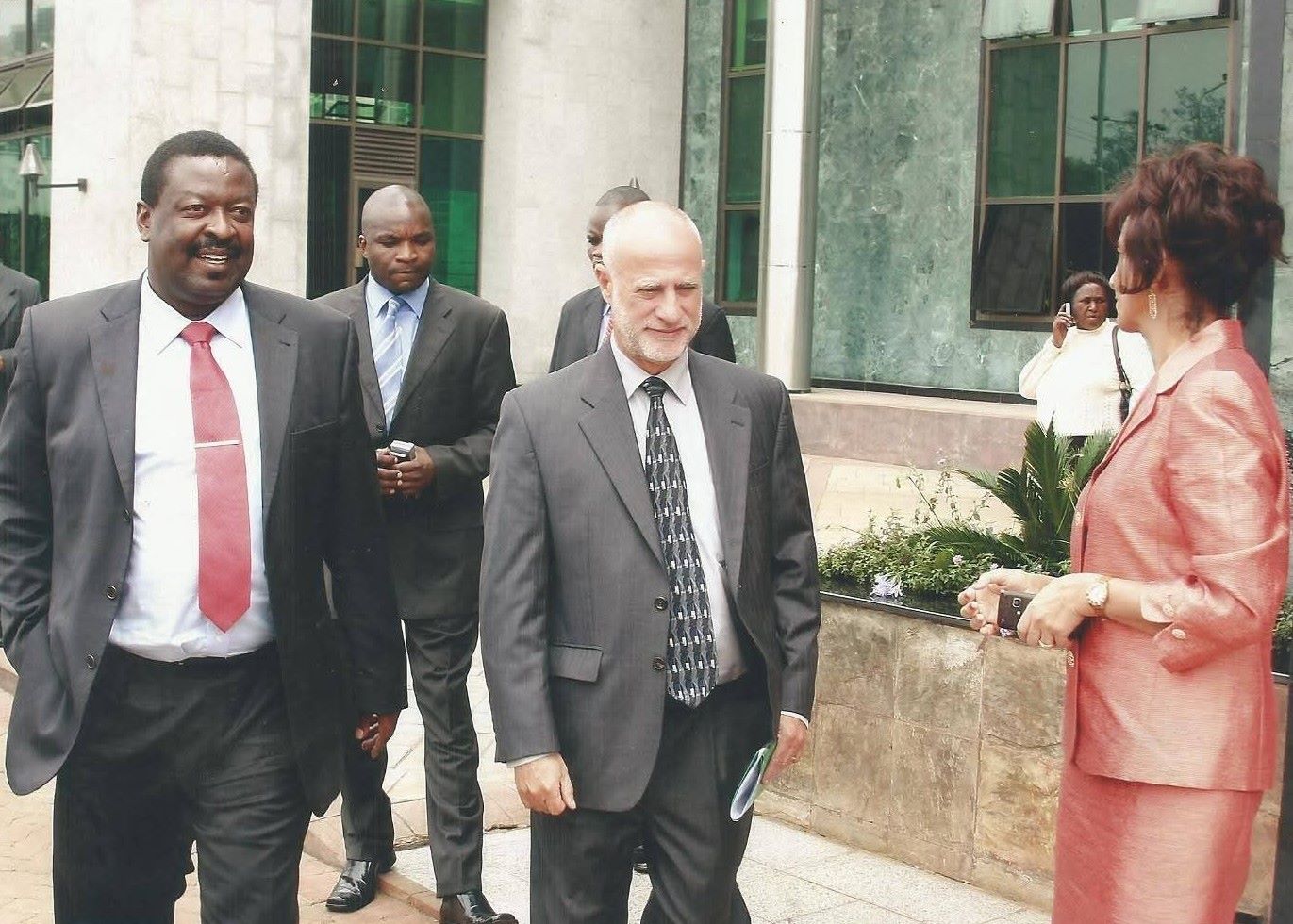
In the East Africa region, Kenya now leads the continent in digital finance, innovation, and connectivity.
The government of Kenya is seeking to increase telecommunications connectivity in the country while lauding the achievements the country has made since the inception of mobile phone use in the country.
Kenya's telecommunications and digital journey was told on Tuesday by Prime Cabinet Secretary Musalia Mudavadi, who was at one time Minister of Information, Transport and Communications.
More To Read
- Pochi La Biashara accounts surge 73 per cent as traders ditch Buy Goods tills
- Kenyans borrowed Sh629.2 billion in six months through Safaricom’s Fuliza service
- Safaricom’s half-year profits up 52 per cent to Sh42.8 billion as Ethiopia loss narrows
- Vodacom settles 17-year ‘Please Call Me’ dispute with former employee
- Over 600 schools to benefit as Safaricom unveils massive education initiative
- Safaricom partners with Eastleigh business community to enhance network and internet connectivity
Mudavadi said the journey spans from a tightly controlled communications system to a dynamic digital economy that is now admired across the region.
He was speaking at an event where Safaricom was celebrating 25 years of operations in the country and across East Africa.
Mudavadi noted that the country’s digital transformation began three decades ago, driven by bold policy reforms and visionary leadership.
“We dared to dream of a connected Kenya, a time of bold ideas and decisive reforms, when we laid the foundations for a digital revolution,” Mudavadi said.
He further said during his tenure as Minister for Finance that he played a key role in steering Kenya toward liberalisation and technological innovation at a time when communication was limited, expensive, and monopolised.
“I spearheaded the liberalisation of our economy, removing price and exchange controls and embedding the principles of a free-market economy that encouraged innovation and private enterprise,” Mudavadi reflected.
He later championed the liberalisation of the communications sector, breaking up the state monopoly and opening the airwaves to new voices.
That shift ushered in a new era, one defined by the rise of private radio stations, increased media freedom, and most crucially, the birth of mobile telephony.
During this transformative period, the government licensed Safaricom and Kencell (now Airtel), unlocking a technological revolution that changed how Kenyans connect and conduct business.
“Working closely with Michael Joseph and the dedicated Safaricom team, we witnessed the rise of a homegrown success story that would go on to empower millions and place Kenya at the heart of Africa’s digital innovation journey,” Mudavadi said.
In the East Africa region, Kenya now leads the continent in digital finance, innovation, and connectivity. From the first mobile calls in the early 2000s to the introduction of M-Pesa, the world’s leading mobile money platform, the nation has transformed into a regional technology powerhouse.
Today, more than 95 per cent of Kenyans own a mobile phone, and mobile money has become a cornerstone of everyday life.
The communications revolution has created jobs, driven entrepreneurship, and enabled access to services from health to education.
“As I look back, I take pride in how far we have come as a testament to vision, courage, and the enduring spirit of the Kenyan people,” Mudavadi noted.
He reiterated that Safaricom’s success, and Kenya’s broader digital rise, stand as powerful lessons in what visionary policy, public-private collaboration, and a daring spirit can achieve, turning a once-closed system into a connected nation that continues to innovate for the future.
Top Stories Today
